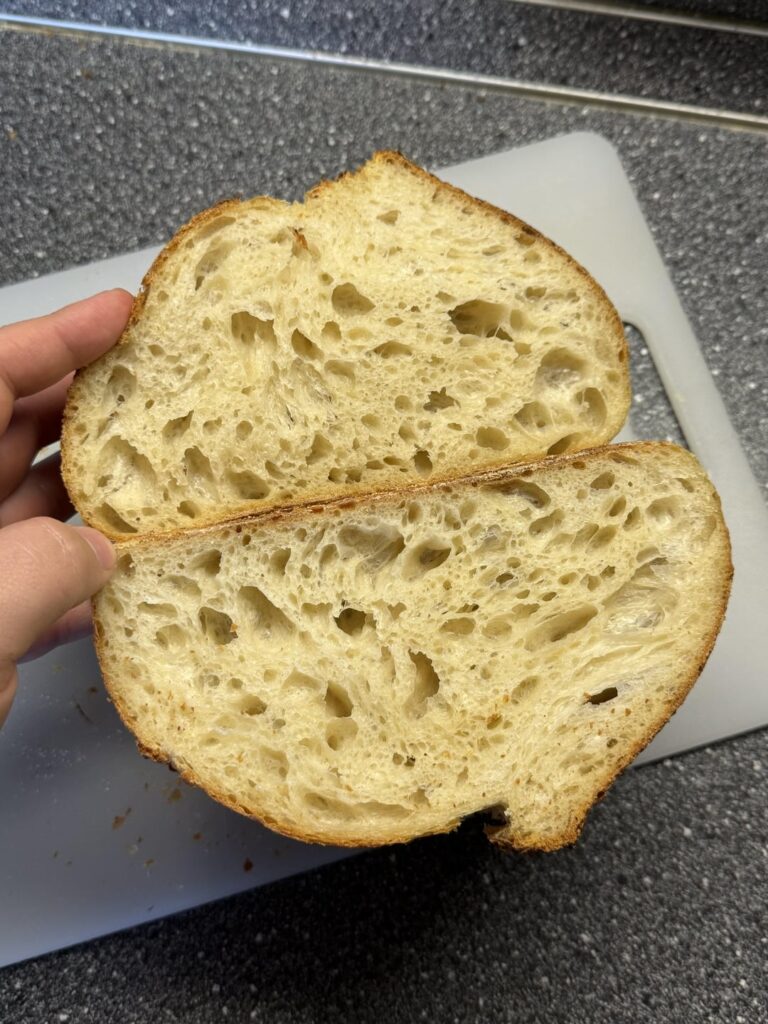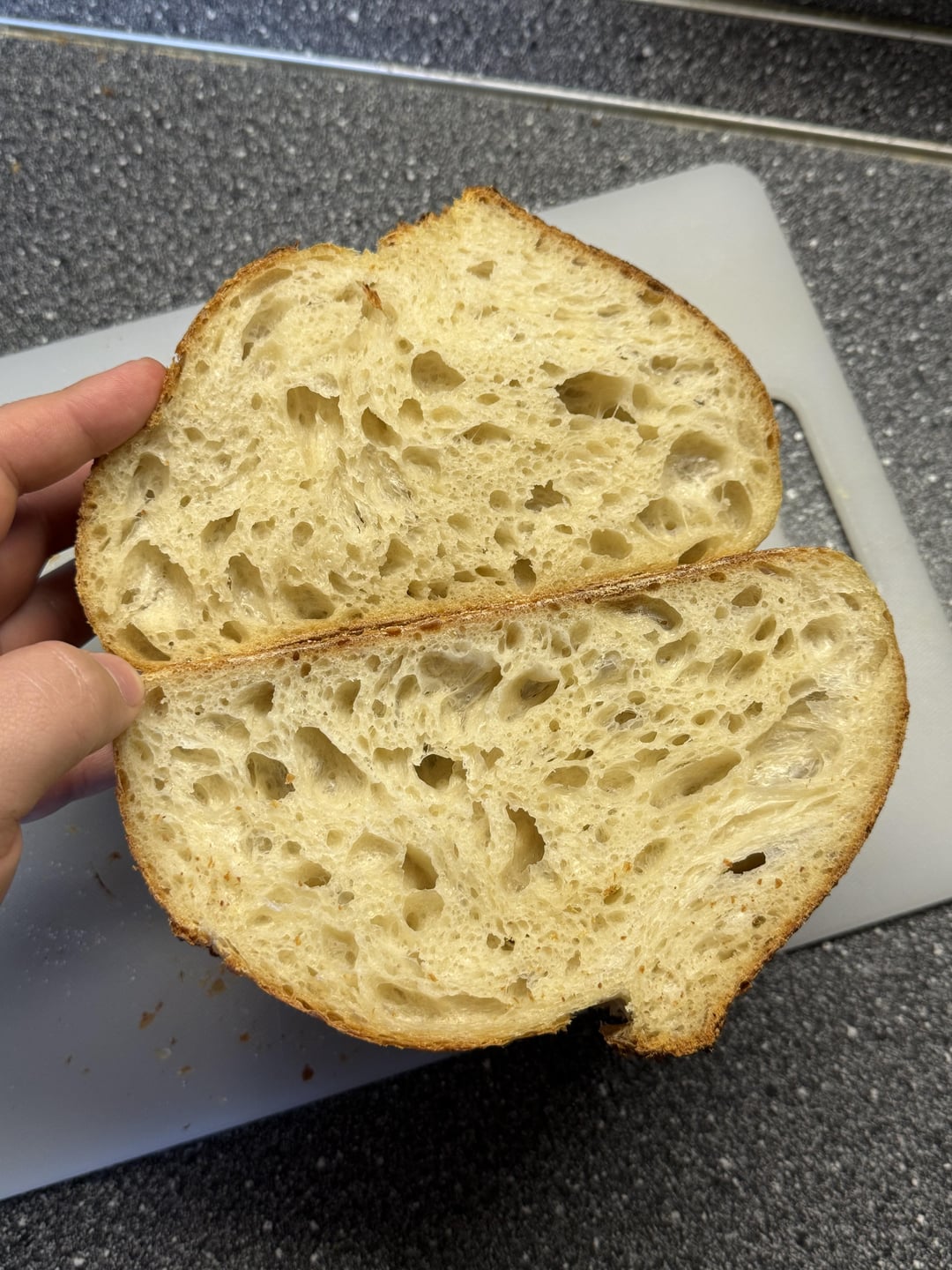
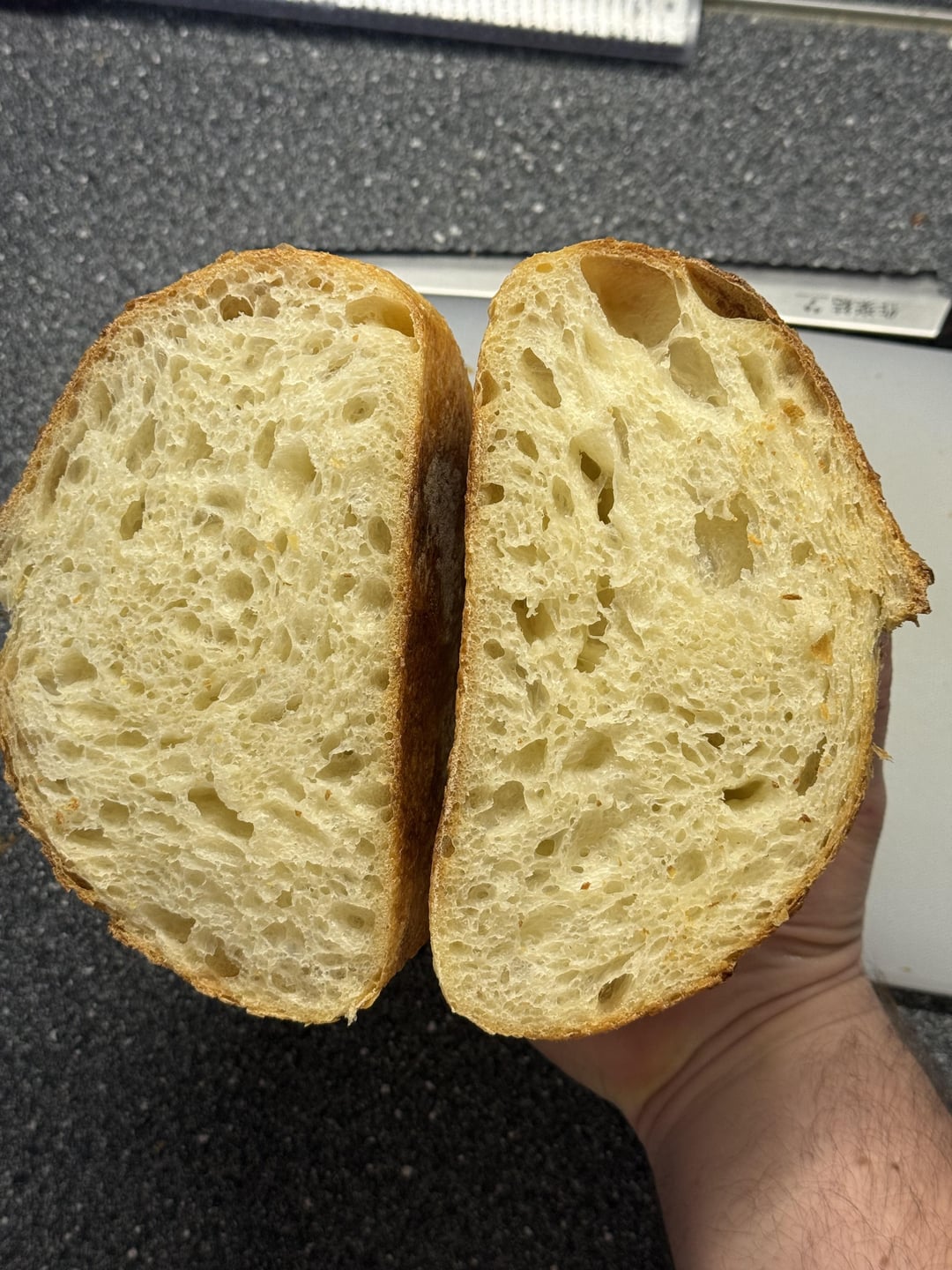
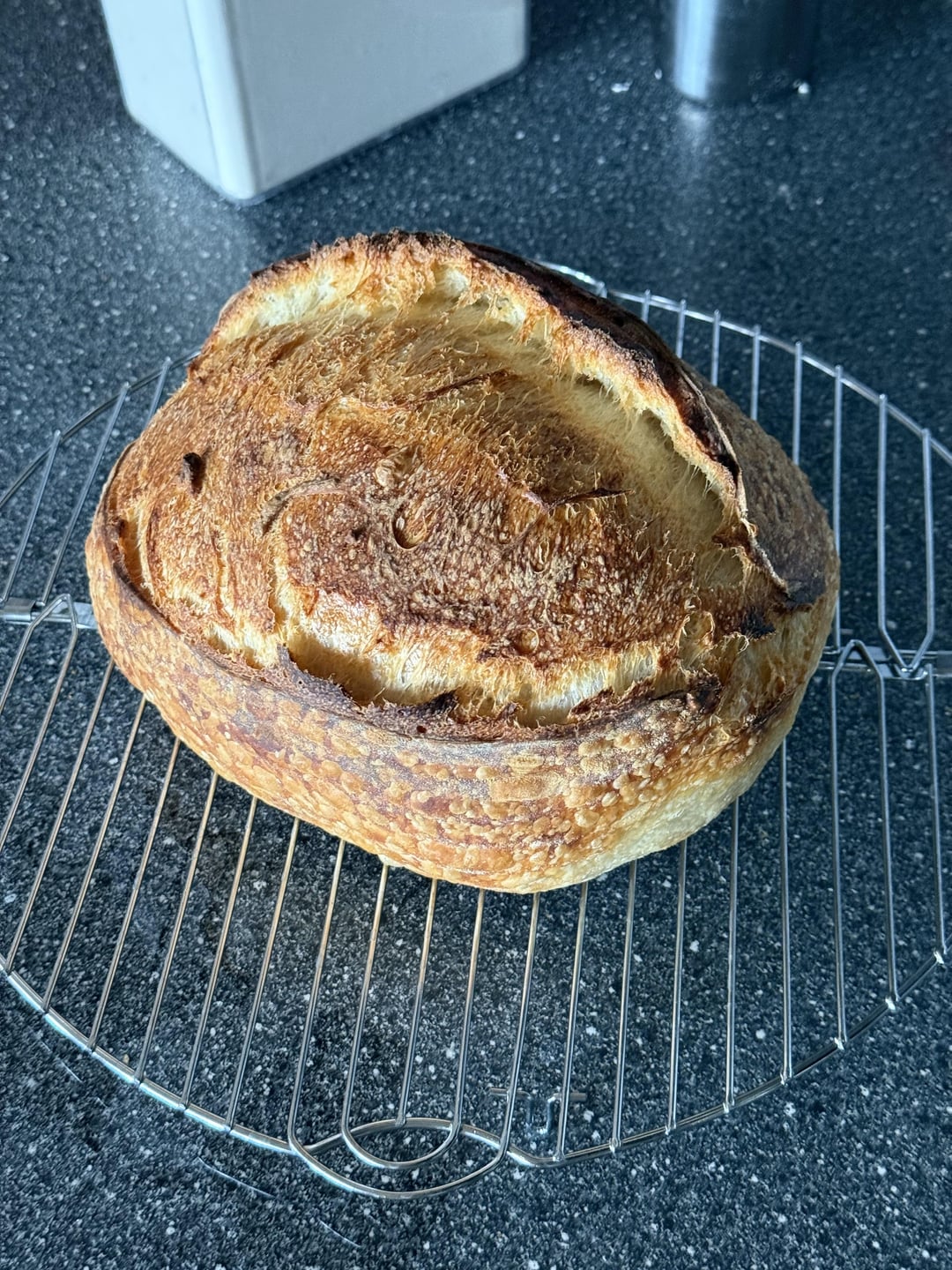
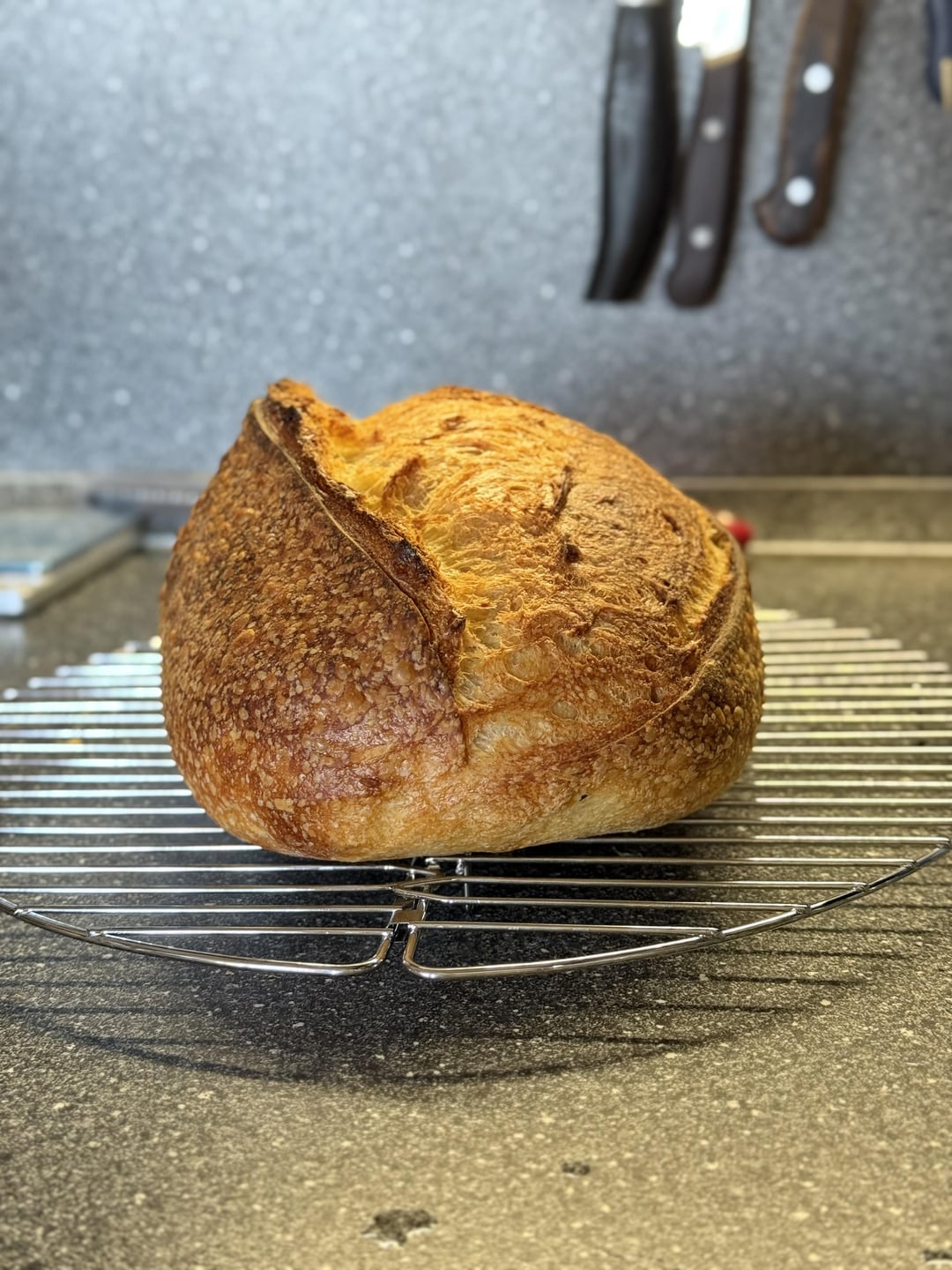
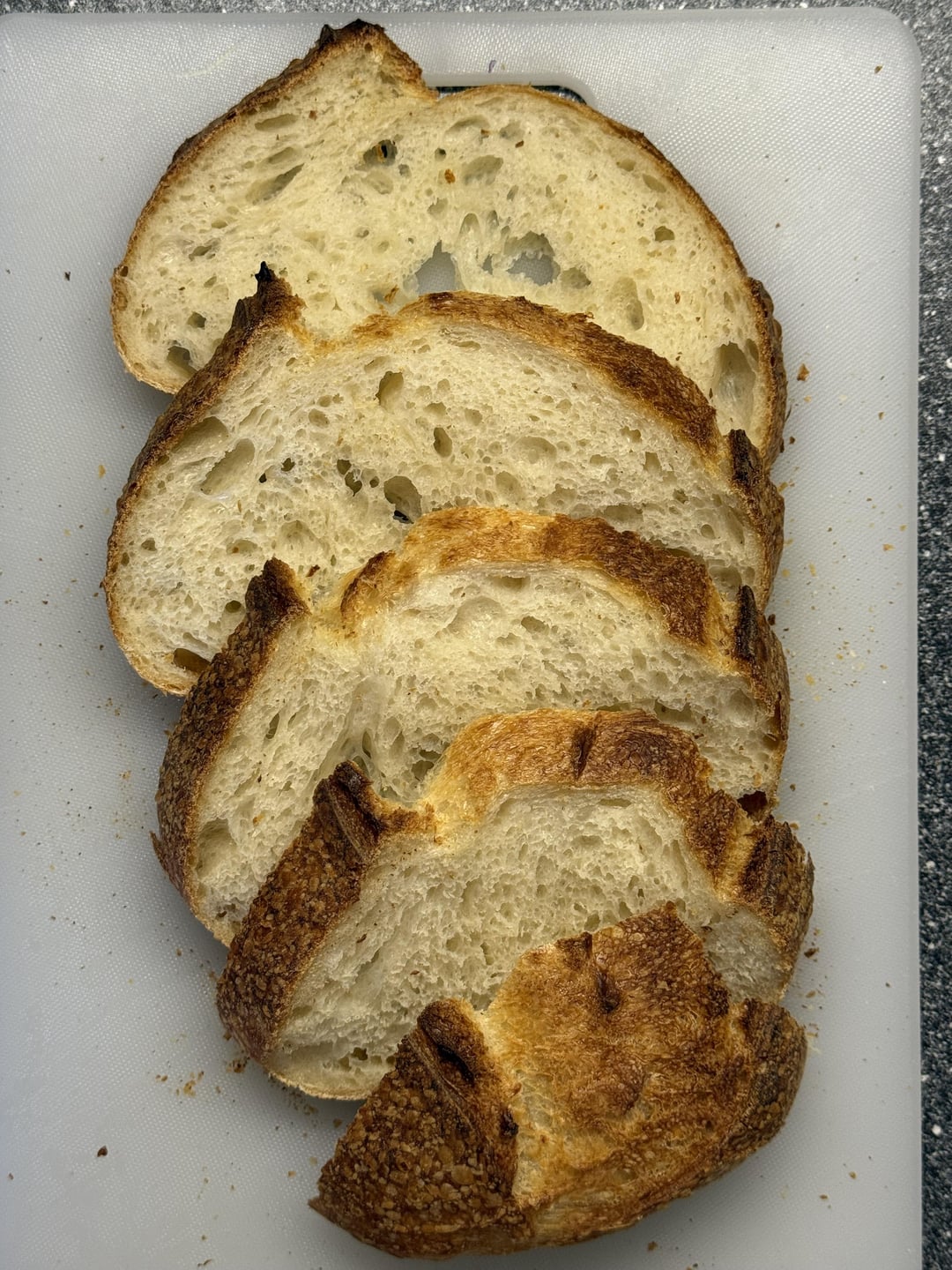
After 1,5 years of on and off home baking i've finally been able to achieve a result i can call "good". Still not great to me but is amazing to lots of people who tried my bread to the lengths of willing to pay for it. Thought i'd share some dwellings and observations that helped me along the way and might be able to help you lads struggling or maybe just thinking about the next steps in your journey
Stick to one flour. Buy one big bag (in my country they come in 5kgs) of flour and use it, feel it, get accustomed to it. Drill one recipe and method and just perfect it as far as it will let you. Do not change anything but hydration and fermentation times and observe. You will know when the dough is right. If you feel like you've stuck a glass ceiling, change something one thing at a time.
Leave out the whole wheat until you are comfortable with 100% white loaves. Most of the recipes online call for at least 10% or even 20% whole wheat flour. Truth is, I found it doesn't really make a difference in taste. if any, it makes the dough harder to manage. Also it produces another variable in your process so I'd advise against it until you are comfortable with a certain flour/process, so that Whole wheat would be one thing you are experimenting with. Also, i don't even use WW for feeding the starter, regardless of people saying it is necessary to "boost" the yeast activity.
Forget about high hydration. Lots of "beginner" recipes call for crazy hydrations of 80%, which may produce a dough that is very hard to manage. For most flours, i'd say start at 70% and gradually add water if the dough is too tight. Crazy hydrations won't necessarily give you the best results. Fermentation is key. That's what gives your bread holes, not the water content.
Higher protein % flour is not always better for bread. I've been chasing the 13—15% flours only to get a tight and somewhat chewy crumb. My best bread to date has been baked with 10% protein flour at 72% hydration (I'm not in the US so ymmv). Research the flours available to you and try them.
Stick to one starter routine. I feed my starter every day before bed and in the morning it's ready to mix. It's not as much about starter health (while it certainly matters to some extent) as it is about your routine. You get to know your starter, how long it stays at peak, how long during the day it ferments. It just contributes to the overall order and ease of things. Feeding ratios don't matter as much, i'd say just keep it more or less consistent. And don't change the flour you feed with, even if you bake with a different one.
Make a dried copy of your starter, when its established and gives you good results. Just in case, you know. Maybe your loved ones will think its trash and pour it down the drain or something.
All the stuff you see about different scoring techniques, cold start/hot start baking, stiff starter vs liquid starter, shaping techniques is snake oil. This is subjective, because it is very difficult to pinpoint the effects of certain techniques but thats what i've found. If you religiously do the 6 min score and it works — good, keep it up. In my experience those things don't matter as long as your fermentation is on point.
Observe your fermentation. The easiest way to do it is via aliquot jar. Just trust me, it will help.
Don't be afraid of overproofing in bulk. Good flour can withstand very long fermentations. Most of the breads i see on here are underproofed rather than overproofed. Lots recommend using the bulk-o-matic system but it didn't work for me and tbh i don't think it works for anybody. Even the guy himself has been promoting overproofing lately.
Know the temps of your fridge and probe the dough. For me this was an important point because i didn't realise that 6C don't necessarily mean my dough is also 6C. I found that reading the surface with IR thermometer is enough.
Baking time doesn't matter that much. Your bread reaches 98 C after first half of the bake. Then you are just setting the crust. That also doesn't contribute to gumminess. For me the only thing that matters is getting the DO up to 250—260 C. But tbh i think it'd work even without it.
Cutting the bread too early doesn't matter. I don't cut it straight outta oven but sometimes I cut it as early as 30 minutes just for it to be manageable. It doesn't make your bread gummy.
Shaping doesn't matter that much. The "tartine"/diaper shaping method might be too tight for a moderate hydration dough though, so if your crumb is tight, try something else. Preshaping is not necessary unless you are dividing the dough or shaping it with something like a caddy clasp
Stretch and folds, i think, don't matter as much. For me the dough is pretty much developed after autolyse + 2 rounds of moderate mixing. My usual process is 4-5 coil folds, i tried making a loaf with just one fold after initial mixing and it was non distinguishable.
Stretch and folds vs coil folds don't matter. Just do what is more comfortable to do given your dough container. Most of the times i just lift it in the middle and fold into a ball
Laminations… for me they don't really make a difference. The only times i do them is when i add inclusions
Making good bread is easy. Making exceptional bread is hella difficult.
Anywho, i'm not a baker by any means and my bread is still far from perfect and i still have lots to learn. I'd be glad to discuss any of these points. Stay sour ya'll.
by timmeh129

